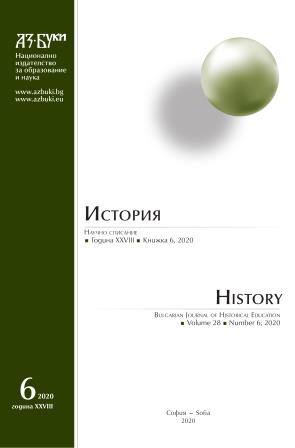
We kindly inform you that, as long as the subject affiliation of our 300.000+ articles is in progress, you might get unsufficient or no results on your third level or second level search. In this case, please broaden your search criteria.



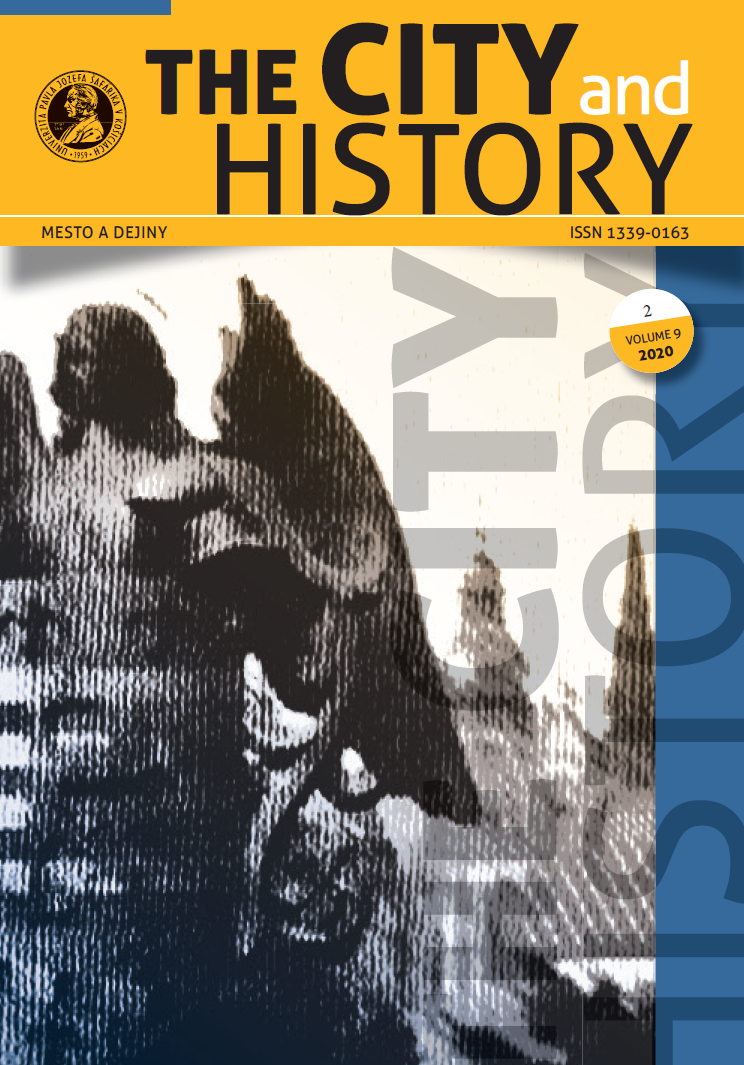
Review of: FICERI, Ondrej. Potrianonské Košice. Premeny etnických identít obyvateľov Košíc v medzivojnovom Československu [Košice Post-Trianon. Ethnic Identity Changes of Inhabitants of Košice in Interwar Czechoslovakia]. Bratislava: VEDA, Vydavateľstvo SAV, 2019, 336 pp. ISBN 978-80-224-1737-2
More...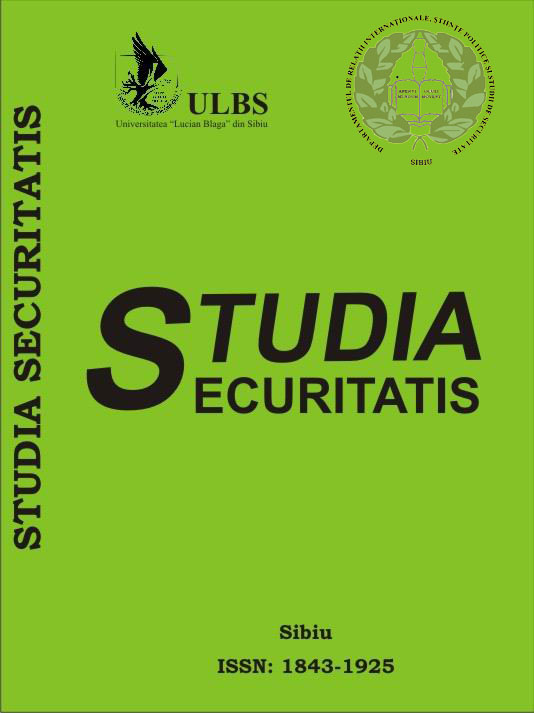
Britain's exit from the European Union and the election of President Donald Trump at the White House are events that are part of a broader global world change project that dominated international political life in the US's sphere of interest and influence in the post-World War II period. The article highlights some of the causes that led planners in Washington and London to make radical changes in their future projects. It highlights how the US has lost over the past decade and a half its international influence and the internal crisis generated by the priority promotion of global interests in the face of the deep interests of the US. It also shows that Britain, after fighting hard with great losses in two world wars as the winner, found itself in a situation where, within the EU, Germany would make the most important decisions. The article highlights the way how it started and then stalled the process of encouraging the American doctrine of Europe of nations.
More...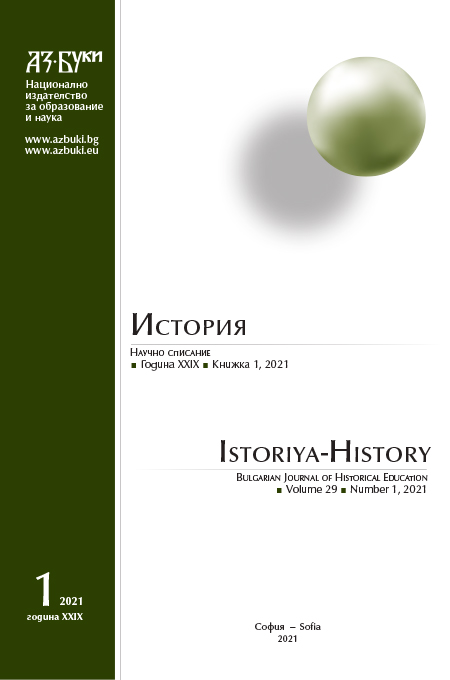
In our modern reality, one of the constantly relevant topics that excites the researchers, the teachers and the general public, is the content of the textbooks especially those on social and humanitarian subjects. The present study focuses on the analysis of a textbook from the beginning of 20th century – “Pictures from the general geography” of the Croatian Ivan Hoic. This work is characterized by a humanistic approach to the issue of otherness and the other. Hoic’ s work presents areal presentation of a foreign culture as a mandatory element of educational process. The view of Bulgarians presented by Hoic creates conditions for our self-knowledge even in the reality of the 21st century.
More...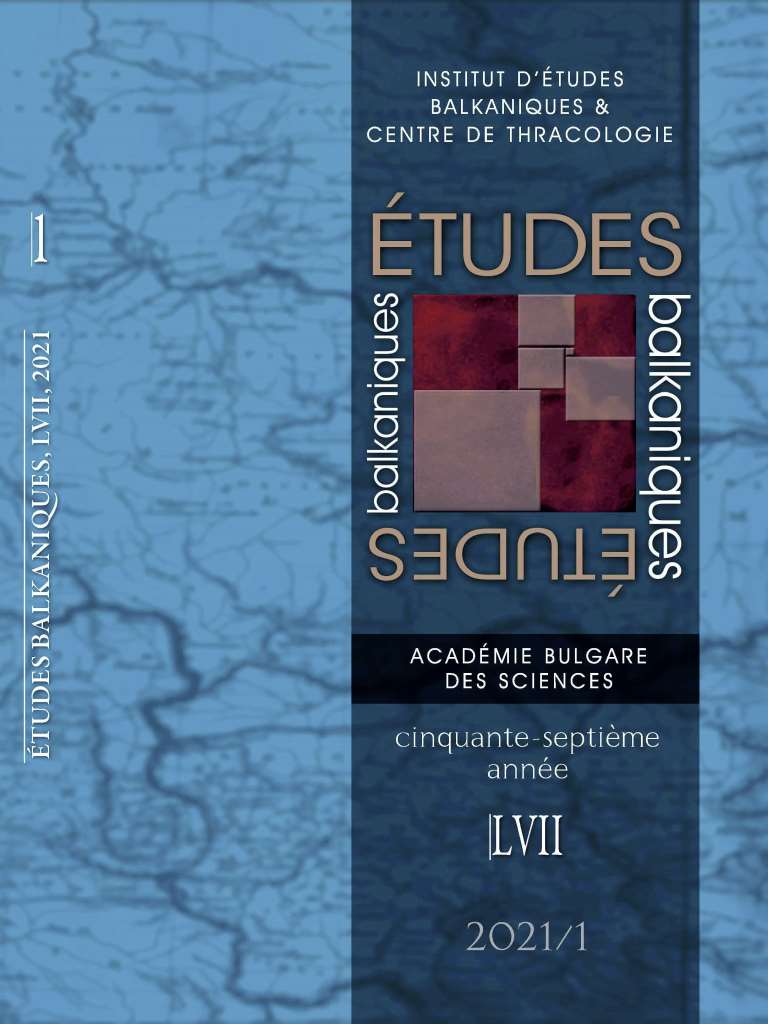
This article will present you with the foundation of the modern Piraeus city between 1833 and 1838 in the light of unpublished archives from the fund of the Greek Ministry of the Interior in King Otto I’s time kept at the General State Archives in Athens. This document shows how immigration to Piraeus was largely channeled by the administration through the establishment of settlements (synoikismoi). It also highlights an original founding of a port city in the Eastern Mediterranean literally out of nowhere. It shows the creation of a community of inhabitants with the essential role of the natives from Chios first, then from Hydra, who form the two main groups, both separated but reunited in the new town, since each group has its own neighborhood, parish and church.
More...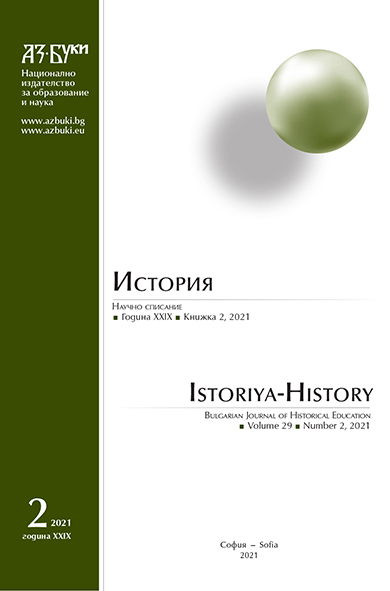
History of Passemanterie industry in Bulgaria is little-known yet. This kind of industry has not a big influence in Bulgarian branch economy. Nor it is of vital importance in individual and social life as well. These are the reasons for comparatively lack of researches in the specified sphere. This article is aiming to deny some commonly adopted views about this kind of industry, including it’s subject activity, investment amount and economic significance.
More...
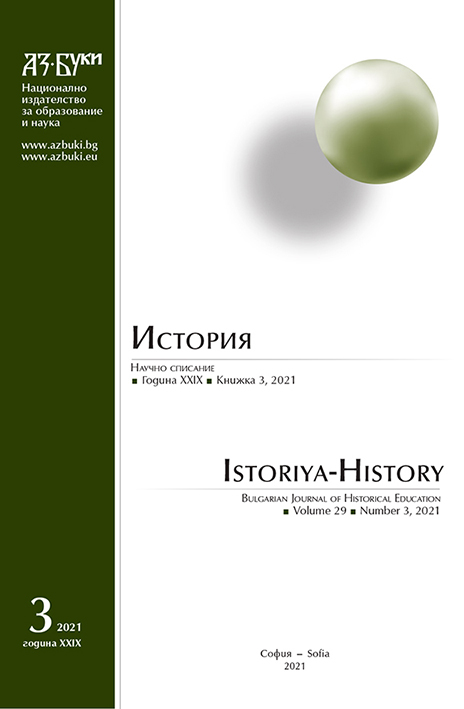
Based on a comprehensive analysis of the materials of the State Archives of Odessa Region, periodicals, charters of Bulgarian charitable societies, reports of the Bulgarian Board of Trustees in Odessa, and scientific literature, the article comprehensively reflects the charitable activities of Bulgarians in the South of Ukraine in the mid-nineteenth – early twentieth century. The main attention in the research is paid to the creation and activity of the “Bulgarian Board of Trustees in Odessa”. Based on the information of the charter, the society’s reports and archival materials, the participation, status and nationality of the society’s benefactors, the directions of its activities, revenues and expenditures have been reproduced. The activities of the society were aimed at supporting Bulgarian Orthodox churches, providing scholarships to Bulgarian pupils, purchase and sending of church and secular literature to Bulgaria, translation and publication of books in Bulgarian. In the second half of the 1870s, the Board of Trustees allocated significant funds for the uniforms of Bulgarian volunteers, the formation of a militia of Bulgarians fleeing to Odessa after the Serbian-Turkish War and their military training in army regiments, the purchase of weapons, and assistance to soldiers. It is noted that the Board of Trustees became an important center of patronage and education and maintained ties with other charitable societies in the South of Ukraine, as well as with all-Russian and Bulgarian societies. Bulgaria’s position in the First World War led to the liquidation of all Bulgarian charitable societies in southern Ukraine by the imperial government. It is noted that Bulgarians were not co-opted into the society of Southern Ukraine and focused most of their efforts on helping Balkan compatriots, training teachers for Bulgarian schools, and not on the development of Bulgarian education in the South of Ukraine.
More...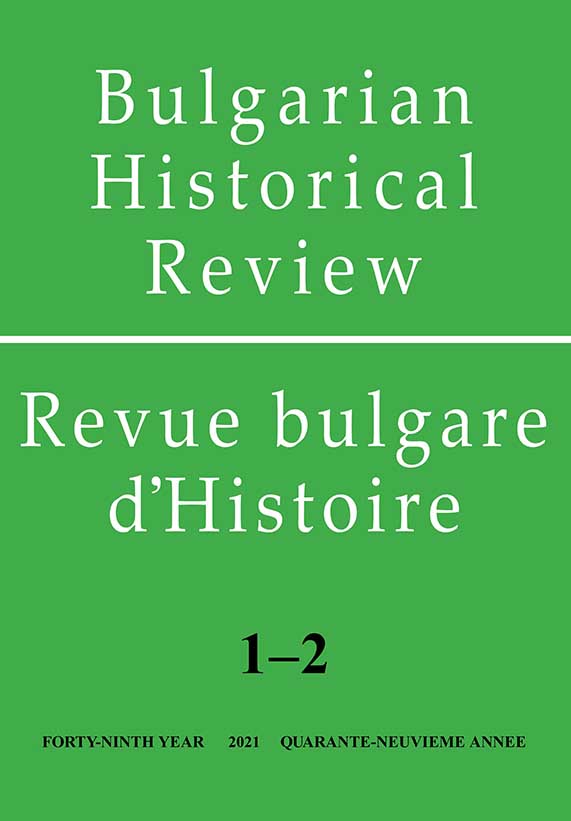
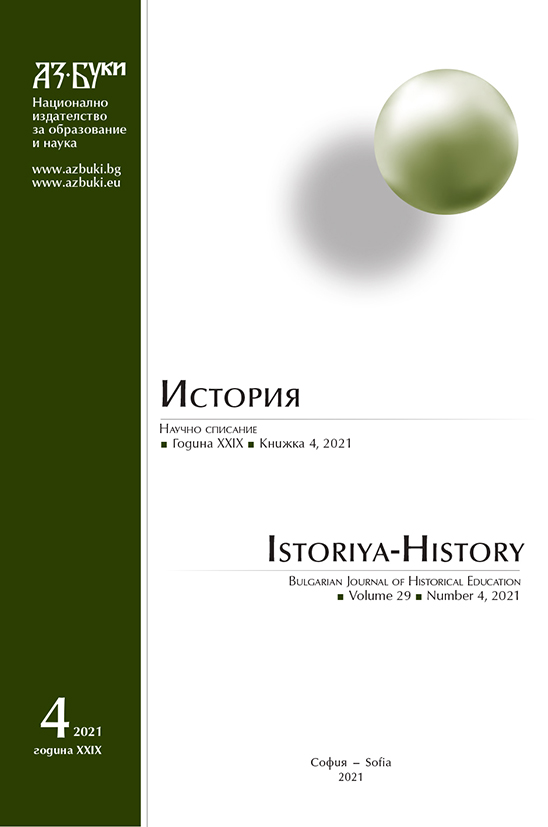
The article is devoted to one of the important aspects of the Stolypin agrarian reform – the practical activities of land settlement commissions in the field of land surveying in Southern Ukraine in 1906 – 1917. The personnel, tasks and functional responsibilities of members of land settlement commissions are clarified. The main types, volumes and results of land surveying works in the region are determined. It is proved that the practice of boundary works differed in the modernization of technical measures for the elimination of cross-strips, small strips, far-flung land, which led to improved field cultivation, increased agricultural yields and rising land prices. Special attention is paid to land management in the Bulgarian colonies of the region.
More...
In 1858 Petko R. Slaveykov (1827–1895) was already an influential public figure in his homeland – the regions of Tarnovo and Tryavna. Gradually, it was becoming more and more visible nationally – especially in the field of the church struggle against the Patriarchate of Constantinople and its metropolitans on Bulgarian lands. Slaveykov’s literary endeavors were becoming more and more recognizable. In this context, one of his unpublished and unknown pamphlets is presented and interpreted in the paper. The attribution of the manuscript is based on a wide range of data – archival, biographical, literary. The connection with the other components of the writer’s work is implemented through facts, topics and language specifics. The full text of the manuscript is presented in compliance with the current rules for publishing archival materials from the Revival epoch.
More...
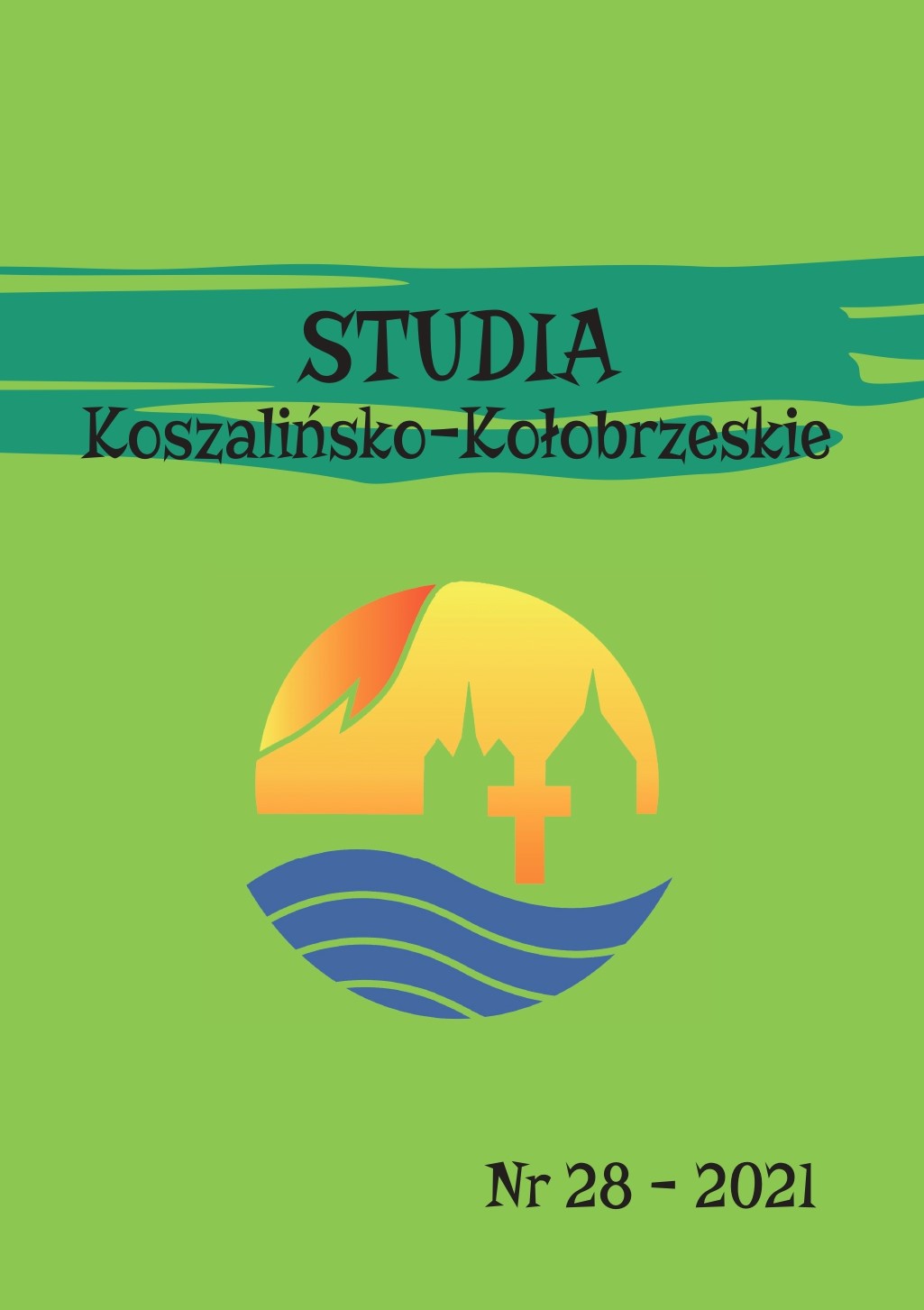
The article debates the issues of the personalist-communitarian concept of social life presented by Cardinal Stefan Wyszyński in the context of the political and social transformations taking place in Poland in the post-war decades. In his praxeological approach, Wyszyński perceives the breakdown of the Christian community and morality as the primary social problem caused by the destructive influence of a human being inscribed in the ideology of collectivism and individualism. Therefore, the above article analyzes the specifics of “incomplete” concepts of man, as well as criticizes the doctrines responsible for the adverse effects of the socio-political changes taking place in the post-war decades of Polish history. This paper also proposes ways in which contemporary models of social life can shape the socio-political reality based on a genuinely humanistic vision of man and citizen.
More...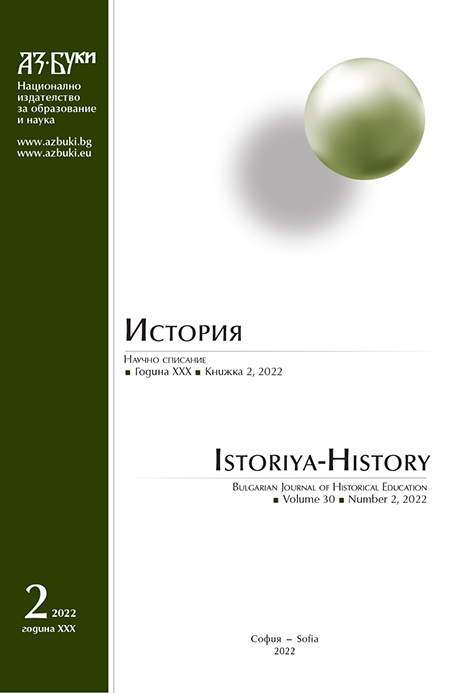
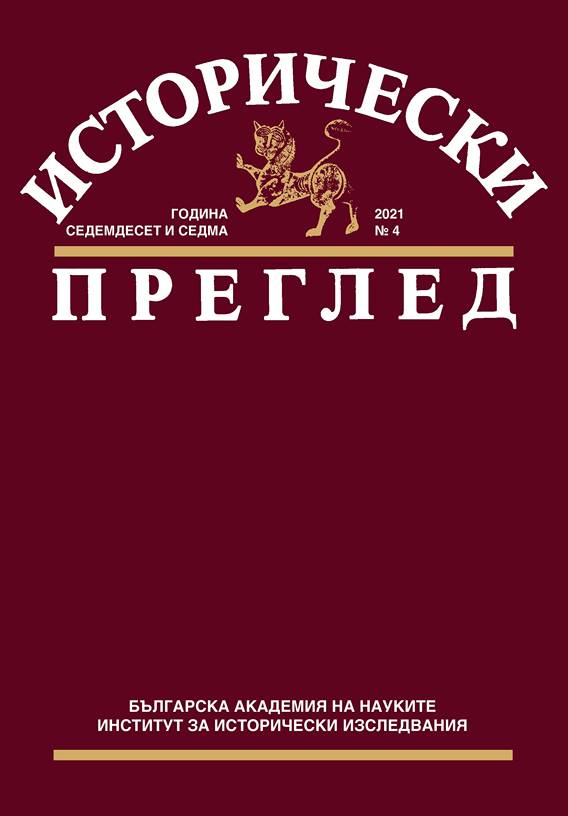
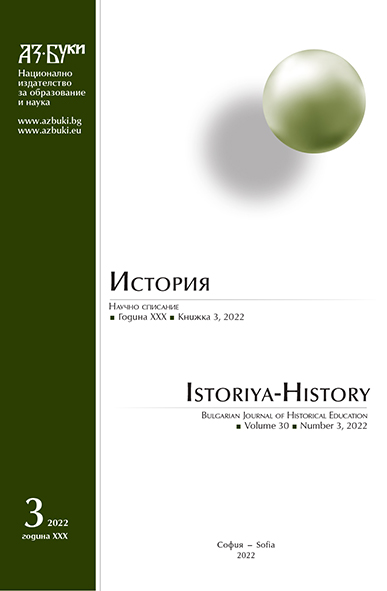

The period under study is conditioned by the author’s interest in the period of modernization and Europeanization of Bulgaria, coinciding with the peaceful years of the reign of Prince/King Ferdinand (1887–1912). These were two and a half decades of upsurge in practically all spheres of state development, which yielded brilliant results due to the united efforts of the Crown and the political class. Logically, this effective development not only did not pass by, but also manifested itself in the sphere of the armed forces, which had gone the long way of their modernization from a small and inexperienced army after the Liberation to the strongest militarily Christian state on the Balkan Peninsula on the eve of the Balkan Wars. Without pretending to be exhaustive, the study offers an overview of the development of the Bulgarian armed forces in the period 1887–1912 in the context of the reign of Prince Ferdinand. It deals with issues such as: the state of the army from the Liberation to the end of the Interregnum (1879–1887); the gradual positive change in the field of modernization of the material and training base of the soldiers and officers; the modern legislative activity of the time; the rearmament of all branches of the army using the most modern Western systems; the establishment of the Institute of Reserve Officers and of the Army Reserve Cadre; the training of officers and sergeants in Bulgaria and abroad (with emphasis on the posting of officers to Russian and Western European training establishments and academies). Important problems are not overlooked, such as the development and maintenance of the cavalry stock and base, the creation of military intelligence, the emergence and development of the problem of Bulgarian soldier and officer uniforms and their direct dependence on the foreign policy context of the time, etc. Among the main contributions of the study is the juxtaposition of the two first Bulgarian rulers, Prince Alexander I and Ferdinand I in their attitude to the military theme and its protagonists, both in practical and political terms. No less interesting is the consideration of the question of the attitude of the two heads of state towards the senior officers and their ability to lead and turn them into instruments of their aims and intentions.
More...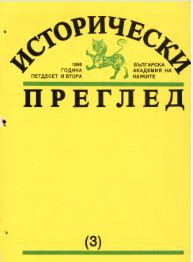
The problems of the foreign policy aspects of the Bulgarian national question (1878-1912) is one of the leading subjects in liberal historiography of the period 1878-1944. Formed under the influence of the European liberalism and historical positivism of the late 19th and early 20th c., Bulgarian historiography was distinguished by thematic variety, interdisciplinary approach, high theoretical and methodical standards and national loyalty. In the spirit of liberal positivism historians analysed the Bulgarian Question within the context of the geostrategic interests of the Great Powers in the Balkans (as part of the Eastern Question). The historical writings objectively reflected the tendencies in Bulgarian foreign policy: 1. Satellitism which was a common "complex" of the small Balkan states; 2. The striving for independent foreign policy, realized to a certain extent during Stefan Stambolov’s cabinets. A number of authors advanced the thesis that the genesis of the foreign policy conflicts in the European South-East was expressed in the confrontation of the European nationalist conceptions: Pan-Germanism, Pan-Slavism, Pan-Turkism, British and French neo-colonialism. The active interference of the Balkan nationalist conceptions found practical realization in the clashes between the armed and cultural-religious propagandas.
More...